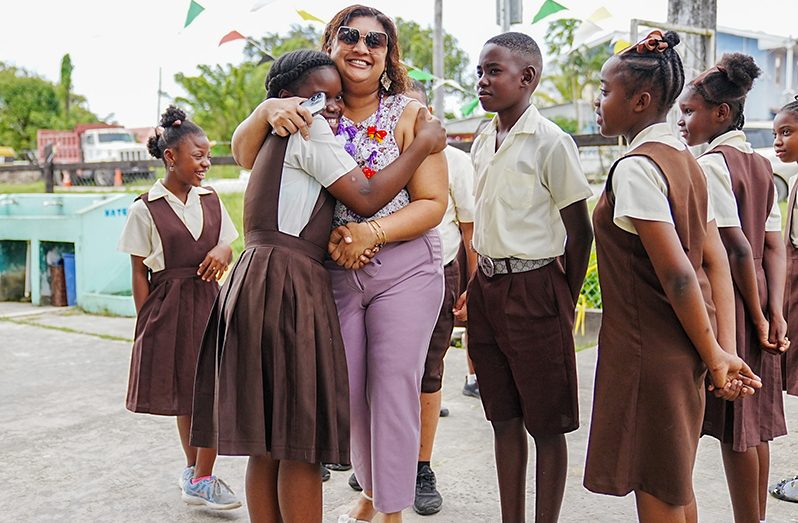THE Ministry of Education, through the National Literacy Department and the National Centre for Educational Resource Development (NCERD), launched the Literacy and Robotics Programme at the Den Amstel Primary School in Region Three, on Monday.
The Den Amstel Primary School is the first school in the country to benefit from this programme.
Education Minister Priya Manickchand said one of the issues highlighted during discussions with parents and teachers was that children attending the school were not reading and performing to an acceptable level.
This prompted a decision to send a team to assess the children of the school. Following that assessment, the Education Minister said that it revealed that 70 per cent of the learners were not reading on par with their grade level.
She told teachers that school will not be as usual anymore for the 45 out of 67 learners who have trouble reading.
Minister Manickchand said that the children will be locked into a strict six-week literacy programme and exposed to robotics at intervals.
She advised parents that in order for the programme to work, their children need to attend school consistently.
According to the minister: “I could guarantee you this, almost anything you do consistently for six weeks whether, by coincidence, or divinity, you will see results. You’re going to see it, the children who come consistently are going to be the children who move; the children who are frequently absent are going to be the children who are left behind.”
She said that the Ministry of Education alone cannot help the children to improve, noting that learning material and human resources will be provided, but parents must commit to taking their children to the next level and supporting the programme.
Assistant Chief Education Officer (Literacy), Samantha Williams, said the results of the Ministry’s 2021 literacy diagnostic assessment showed that there is a higher percentage of pupils at the primary level who are reading three to four or more ages below their age and grade level.
In order to improve those statistics and ensure that every child has an opportunity to become a fluent reader by Grade Four, the Ministry of Education, through the National Literacy Department, has started to implement a menu of measures, and Monday’s launch being one of many to come.

Williams said that the literacy programme provides an intensive fast paced remedial intervention to fast-track learners’ literacy skills especially their ability to read.
According to Williams, the Ministry of Education expects that with consistent quality instructions, continuous tracking of performance and prescriptive methodology, the pupils who start this intervention will begin to see improvement and move closer to reading at their age level within six weeks of the programme.
She said that the programme will be delivered through an in-school mechanism as well as an afternoon reading club programme.
The in-school programme will begin at the basic level, move on to the intermediate level and culminate at the advanced level.
Meanwhile, the after-school programme will take the form of a reading club, which would improve the enthusiasm of children and improve the culture in the school.
Regional Chairman of Region Three, Inshan Ayube, said that the Education Minister has stuck to her word and continues to work with the school to ensure that no child in the community is left behind.
Ayube said that Guyana is developing at a fast rate and that it needs literate persons who can comprehend what is unfolding in front of them and push the development agenda.
He said the programme is important to the school and the community, so parents need to do their part and work with their children and to ensure they attend school to benefit from the materials and instruction.
Kim Spencer, Curriculum Subject Specialist – Information Technology, said that the robotics component will see the learners getting a chance to work in groups with their friends to assemble robots. She said that literacy will play a big role in the robotics component as the children will have to read and comprehend the instructions to build the robots correctly while still having fun.












